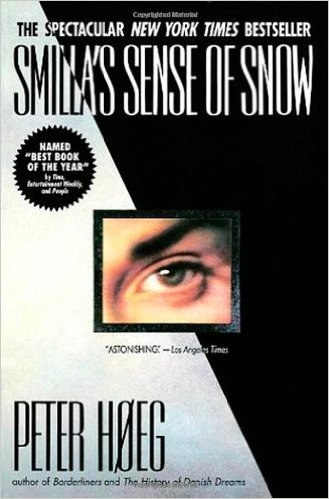Smilla's Sense of Snow, by Peter Høeg
 I don't know how I got to have Smilla's Sense of Snow on my reading list, but Wow! is it a good book! The whole story revolves around a half Inuit half Danish woman who is trying to understand why a small child died. As we follow this Nordic Noir plot, we learn a lot about the Greenlander culture, its interaction with their Danish European colonizers, the way people live in the "true north". The writing and the characters are also delightful. I loved this book.
I don't know how I got to have Smilla's Sense of Snow on my reading list, but Wow! is it a good book! The whole story revolves around a half Inuit half Danish woman who is trying to understand why a small child died. As we follow this Nordic Noir plot, we learn a lot about the Greenlander culture, its interaction with their Danish European colonizers, the way people live in the "true north". The writing and the characters are also delightful. I loved this book.
Peter Høeg is writing a stoic, kind of psychologically stuck, woman, her icy heart - tempered by the teachings of her native Greenlander mother and the brilliantly intellectual but emotionally weak Danish father - gets softened by the arrival of an Inuit boy at her doorstep. She doesn't want to warm up to him, but he becomes almost a surrogate child to her. Then he dies. The rest of the book is Smilla making sense of his death through a labyrinth of government corruption and overreach, shady characters that almost all prove to be not what they seem and the hard science of ice.
I loved the writing, careful to detail, always full of hints about people's inner motivations or some cultural ideas or some scientific knowledge, but that never felt shoved down your throat; they are just there for the taking. A Danish buffet. Smilla's sense of ice is not really used much in the book, the entire concept is more of a metaphor for the many types of hardness inside her and their potential to melt. It's a long book and sometimes it meanders towards a destination or conclusion, but the journey is almost always interesting and bringing a little bit more insight into the Danish mindset.
Also, it was kind of apropos to read about a Greenlander character right when a deranged American president had dreams of buying the territory from Denmark (or else...). It's immediately apparent that even for a culture of social democrats like the Danes, annexing a territory already occupied by native populations goes the same way as for any other conqueror before them. The forced education at the threat of military power and cultural erasure, the pillaging of the land, the brutal authoritarian control, the way people are being swept away before the tide of progress.
I loved reading the book and I liked Smilla's character. Some things were pushed a little too far towards the end, but overall I almost couldn't put the book down. There is also a film adaption, featuring Julia Ormond of all people, from 1997, and I am going to watch it as soon as possible. Highly recommended.
Comments
Be the first to post a comment